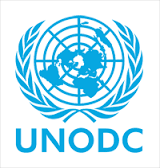Remarks of the Executive Director, UN Office on Drugs and Crime, Yury Fedotov:
Special event: “Assisting and protecting human trafficking survivors in the context of armed conflict, refugees and mixed migration flows”
22 May 2017
 VIENNA, 22 May (UN Information Service) – Good afternoon, and many thanks for coming to this very important event.
VIENNA, 22 May (UN Information Service) – Good afternoon, and many thanks for coming to this very important event.
2017 so far has proven to be another deadly year for thousands of migrants and refugees across the world, many of whom were seeking to escape conflict and violence.
Conflicts create favourable conditions for traffickers.
Armed groups have engaged in trafficking in the territories in which they operate, and recruited thousands of children for the purpose of using them as combatants.
Those fleeing war and persecution are particularly at risk of becoming trafficking victims, as many factors that may increase vulnerability – such as uncertain status, lack of economic opportunities, discrimination and gender-based violence – are exacerbated.
The international community has becoming increasingly engaged in confronting human trafficking in the context of armed conflict, as well as in refugee and migration flows.
The Security Council held its first-ever thematic session on human trafficking in December 2015 and one year later adopted the first resolution, calling on Member States to prevent and counter human trafficking in conflict situations, and to protect those at risk of being trafficked.
Last September, the General Assembly held the Summit for Refugees and Migrants.
In the New York declaration, Member States committed themselves to intensifying efforts to combat human trafficking, ensure protection and assistance to victims and implement relevant international instruments, including the UN Convention against Transnational Organized Crime and the Protocols against human trafficking and migrant smuggling.
Member States also agreed to develop two new global compacts, one for refugees and one for safe, orderly and regular migration, to be adopted in 2018.
A General Assembly thematic consultation on migrant smuggling, human trafficking and contemporary forms of slavery will be held in Vienna on 4 and 5 September as part of this process.
Our UNODC Goodwill Ambassador Nadia Murad briefed the first Security Council session on how she had survived trafficking in the hands of ISIL. She was also chosen to speak at the opening of the Summit for Refugees and Migrants.
Nadia will tell you her story herself, but I would like to say that her courageous account and determination to seek justice have helped to galvanize world attention and action on this issue.
I thank her.
However, ladies and gentlemen, we cannot ignore the fact that the crime of human trafficking still remains all too hidden, despite affecting virtually every country in the world.
If we fail to recognize vulnerabilities to human trafficking, particularly in the context of armed conflict and refugee and migrant flows, victims may not be identified, or given the assistance and protection they are entitled to.
If victims are not identified, prosecutions of this crime will continue to be all too rare.
We therefore need better awareness of the circumstances that increase people’s vulnerabilities to trafficking.
Informed understanding can also guide national responses to lower trafficking risks for vulnerable groups, help to identify victims and ensure that they receive physical and mental health support, witness protection and remedies.
With this event today, we hope to bring further attention to this pressing problem, and to ask for your support.
Direct assistance to victims and those who may become victims is urgently needed.
The UN Voluntary Trust Fund for Victims of Trafficking in Persons was established by Member States to provide humanitarian, legal and financial aid to victims.
I would like to thank Ms. Ferrero-Waldner, who is here representing the Board of Trustees, for the Board’s strategic guidance and support.
I urge all Government and other parties to help the Trust Fund do its vital job and ensure that more victims of trafficking can be survivors.
Thank you.
